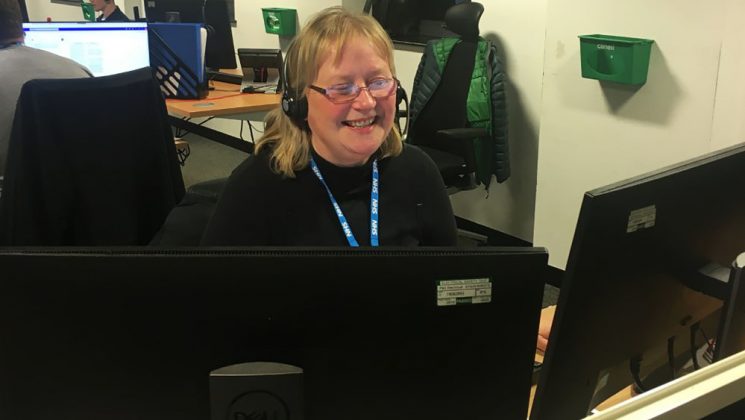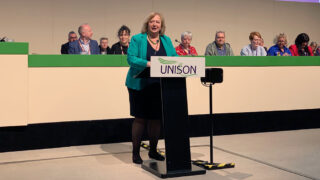UNISON member and rep Stella Quentin is a 111 call handler for the South East Coast Ambulance Service.
In normal times, the 300 call handlers in Stella’s office take around 2,000 to 3,000 calls a day. The severity of calls ranges from sore throats and coughs to people who have taken drug overdoses. A 111 call handler has to be ready to deal with whatever is on the other end of the phone.
As COVID-19 has emerged, the volume of calls has doubled, with some days seeing as many as 7,000 calls.
“Normally, it’s quite a brutal place to work,” says Stella. “The pressure is constant and as soon as you finish one call you have to pick up the next.
“You never know what you’re getting on the next call. We have targets to answer calls within 60 seconds and we have timed 10-minute breaks. It’s a high-pressure workplace, and that pressure has increased over the years because people can’t get GP appointments.
“If you’re not logged on and taking calls, managers will come and find out why.
“But once the call levels started to go through the roof with COVID, the pressure from management has stopped. We already have overtime policies in place, but now managers give us extra breaks and, this Saturday, my manager was pushing a tea trolley round to bring us hot drinks while we were taking calls.”
And Stella continues: “Managers have been emailing us with really positive affirmations, saying ‘you’re all doing great… you’re doing a really good job… just take each call at it comes and pace yourselves’. It’s really outstanding and their approach has made a huge difference.”
She notes that the vast majority of the calls she picks up are related to COVID-19.
“On Saturday, I got through 26 calls in six hours. And I think only three were non-coronavirus. Now it feels like a relief to get a non-COVID call”.
The office is also taking precautionary measures for call handlers. Every day, Stella and her colleagues get their temperature taken when they arrive.
“If you test over 37.5, you’re sent home. We’re all having to wipe our desks down, and we’re told to space ourselves among the desks and not sit directly next to each other if we can avoid it.”
Despite the pressure of the pandemic and the weight it’s placing on an already over-burdened 111 service, Stella is proud to do the job she does – and proud of the way that managers are supporting frontline staff.
“Our managers are bringing tea to us. My manager joked that she’s the best tea lady in the NHS. It feels like we’re really being looked after.”


